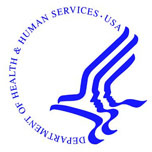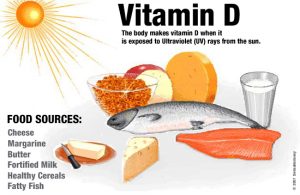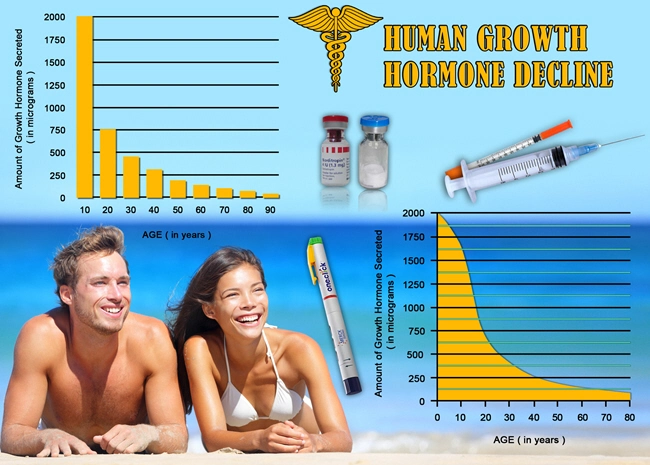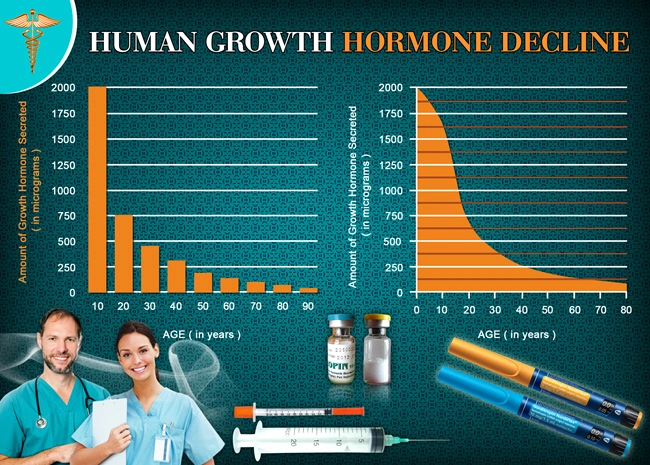
Video Link: https://vimeo.com/285008068
Video Download: Click Here To Download Video
Video Stream: Click Here To Stream Video
Research scientists continue to discover new benefits to vitamin D3. They have also found that vitamin D3 is technically not a vitamin, but a hormone...a potent hormone that can play many vital roles in maintaining your good health.
This recent research has lead to the conclusion that vitamin D3 is more important than we ever believed. Let's take a look at what vitamin D3 is and the role it plays in your body.
 One difference between vitamin D3 and other vitamins is this: We, a long with others in the mammal kingdom, can create Vitamin D3 by exposing ourselves to direct sunlight.
One difference between vitamin D3 and other vitamins is this: We, a long with others in the mammal kingdom, can create Vitamin D3 by exposing ourselves to direct sunlight.
This was first noticed shortly after vitamin D was discovered in 1920. The decade of the 1920s ushered in the Industrial Revolution and witnessed scores of people moving into cities and working indoors in dark, grimy factories.
This contrasted greatly with their previous rural work outdoors, where they were exposed to sunlight.
At the time, scientists were urgently seeking a cure for rickets, a debilitating bone disease that primarily affects children. Researchers noticed that those who lived in areas with less sunlight had a much higher rate of rickets than those in sunny climates.
The hypothesis then was tested and proven: Vitamin D is essential to the bone health of everyone, especially children. And the best source of this vitamin was thought to be the sun.
But there are a few problems with this sunlight exposure approach. For starters, scientists have established a direct link between excess sunlight and skin cancer.
Second, for those people who live in the northern latitudes, getting enough direct sunlight in the middle of a freezing winter is not an easy task. As you move farther from the equator, the angle of the sun increases.
Why is this important? Because this results in fewer Ultraviolet-B rays that help you create adequate vitamin D levels. This is especially true in the winter months. Therefore, supplements are needed to fill in the gap.
Make Sure You Take the Right Kind of Vitamin D
Before we go any further, it is essential to make crystal clear the type of vitamin D that we are referring to. There are two types of vitamin D available in  supplements; Vitamin D3 (Cholecalciferol) and vitamin D2 (Ergocalciferol).
supplements; Vitamin D3 (Cholecalciferol) and vitamin D2 (Ergocalciferol).
The distinction is simple. Vitamin D2 is synthesized by plants, while vitamin D3 is synthesized by humans when ultra-violet-B rays from sunlight hit our skin.
Therefore, vitamin D3 is the more natural type of vitamin D. In addition to being more natural, vitamin D3 converts much faster than vitamin D2, and D2 has a shorter shelf life.
The takeaway is simple. Vitamin D2, while most certainly better than nothing, should not be your first choice of a vitamin D supplement. Whenever possible, stick with vitamin D3.
How Common is Vitamin D Deficiency?
More common than imagined. According to the American Journal of Clinical Nutrition, in 2008, vitamin D deficiency was recognized as a pandemic! With the dire warnings from dermatologists about the risk of skin cancer due to sunlight exposure, we are getting less vitamin D than ever. Also, very few foods naturally contain vitamin D.
A French study concluded that 14 per cent of otherwise healthy adults had low levels of vitamin D...very low. Another study, this time in America, measured the vitamin D levels of medical professionals -- and discovered that among those who had not taken a vitamin D supplement, an astonishing 42 per cent of them had a vitamin D shortage by winter's end. Among those tested who did supplement with vitamin D, the deficit rate was reduced to 11%.
Here are a few more categories of folks that are at an elevated risk of vitamin D deficiency:
- Children, regardless of age
- Pregnant women
- Obese people, and those who have had bariatric surgery
- Anyone with liver and kidney problems
- People with dark skin
- Anyone with osteoporosis, or an older adult who has a history of falls or has had a bone fracture.
So, now you can see the need for this vitamin and its importance. Simply put, Vitamin D3 just about does it all! From the anti-aging and anti-inflammatory properties to keep your brain neurons firing on all cylinders and fighting depression, the benefits just keep on coming. Let's look at a few more things this  miracle vitamin does:
miracle vitamin does:
- According to the U.S. Department of Health and Human Services, vitamin D is essential for the "formation, growth, and repair of bones and normal calcium absorption and immune function." They add there are studies to suggest that "higher levels of vitamin D in the blood are associated with reduced risks of colorectal cancer; however, the research results overall have been inconsistent."
- Prevention of osteoporosis. Vitamin D helps us absorb calcium and phosphorous, which play a crucial role in maintaining the strength and integrity of our bones.
- Strengthens the immune system. Immune system cells have structures with vitamin D receptors. Therefore, as a result of vitamin D deficiency, your immune system is weakened, and the risk of infection dramatically increases. Also, vitamin D3 protects the body from respiratory diseases and can help the body defend against tuberculosis. Finally, vitamin D3 is a safe and effective way to prevent and lessen the effects of the flu virus.
- Reduce heart attack risk. A study published in 2012 concluded that low levels of vitamin D3 might increase the possibility of heart attack and early death. In fact, a 2010 presentation at The American College of Cardiology demonstrated that low levels of vitamin D in patients with cardiovascular disease were approximately 30 per cent less likely to die if they supplemented with vitamin D3. Cardiovascular disease is the leading cause of death worldwide. Vitamin D3 is a weapon of protection to add to your arsenal.
- Maintaining a healthy body weight. According to research carried out at The Medical College of Georgia, vitamin D plays a significant role in the maintenance of healthy body weight.
- Reduces the risk of Multiple Sclerosis (MS). Multiple Sclerosis is far less prevalent the nearer you get to the equator since there is more sunlight.
- Reduces the risk of many types of diseases. Cancer (colon, prostate, breast, and pancreatic), autoimmune diseases (diabetes, rheumatoid arthritis), and Crohn's disease occur less in a person with adequate vitamin D levels than those with vitamin D deficiency.
- Raise testosterone levels in healthy adult males, according to a recent University study published in “Hormone and Metabolic Research.” This is especially important for older men, who are suffering from a gradual reduction of their testosterone levels due to aging.
How to Make Sure You are Getting Vitamin D3's Benefits
One way to ensure you are getting an adequate amount of vitamin D is the way Mother Nature intended: the sun. 10-15 minutes of exposure is enough to get the vitamin D supply that you need, especially in the summer months. There is indeed no reason to risk developing skin cancer by continually staying in the sun longer than that.
As with so many other health concerns, the food you eat plays a vital role in getting a sufficient supply of Vitamin D3. Here is a brief list of foods that contain vitamin D:
- Egg yolks
- Raw milk
- Cereals
- Cheese
Finally, consider supplementing. The recommended dosage depends on how severe the deficiency is -- and this can be discovered by a blood test.
Currently, the U.S. Recommended Daily Allowance (RDA) is 400 International Units (IU's). Considering the fact that on a hot, sunny summer afternoon, it is possible to receive a dose of 20,000 IU's of vitamin D in as little as 15 minutes of laying in the sun, the RDA seems a tad bit anemic. A minimum dosage of vitamin D should be in the range of 2,000 to 3,000 IU's per day. This is particularly the case in the northern latitudes during the winter months.
There are very few supplements that the majority of researchers say that almost everyone should take...and vitamin D is one of them.
 In closing, here is a quote from Dr. Michael F. Holick, MD, Ph.D., professor of medicine, physiology, and biophysics at the University of Boston Medical Center:
In closing, here is a quote from Dr. Michael F. Holick, MD, Ph.D., professor of medicine, physiology, and biophysics at the University of Boston Medical Center:
"Vitamin D doesn't treat diseases; vitamin D is there to help prevent chronic illnesses."
Health has been described as “90 per cent Prevention, 10 per cent cure”, and this has been proven time and time again. The miracle protection offered by vitamin D3 is safe, secure, and inexpensive. Your continued good health may depend upon you taking advantage of it.
References
Vitamin D supplements could help reduce falls in homebound elderly
Vitamin D: Vital Role in Your Health
Vitamin D levels linked to cardiorespiratory fitness
Contact Us Today For A Free Consultation
Dear Patient,
Once you have completing the above contact form, for security purposes and confirmation, please confirm your information by calling us.
Please call now: 1-800-380-5339.
Welcoming You To Our Clinic, Professor Tom Henderson.

- The Facts About the Sunshine Vitamin — Vitamin D Benefits [Last Updated On: September 2nd, 2025] [Originally Added On: June 2nd, 2020]
- Vitamin C, The Essential Vitamin, What You Need To Know About Vitamin C [Last Updated On: January 16th, 2025] [Originally Added On: August 2nd, 2020]
- What You Need To Know About Vitamin E [Last Updated On: January 15th, 2025] [Originally Added On: March 6th, 2021]
- Leafy Greens are Medicine for Your Gut [Last Updated On: September 27th, 2025] [Originally Added On: April 23rd, 2021]
- All Praise to the Spud -- the Delicious, Health-Giving Potato, That Is [Last Updated On: August 12th, 2025] [Originally Added On: June 1st, 2021]
- Benefits Of Pyrroloquinoline Qinnone [Last Updated On: October 30th, 2024] [Originally Added On: June 7th, 2021]
- Testosterone and Vitamin B6 [Last Updated On: January 12th, 2025] [Originally Added On: October 25th, 2021]
- Growth Hormone, Testosterone, and Nutritional Supplements [Last Updated On: January 15th, 2025] [Originally Added On: October 25th, 2021]
- Testosterone and Astaxanthin: The Surprising Link [Last Updated On: January 13th, 2025] [Originally Added On: October 25th, 2021]
- Growth Hormone, Testosterone, and Nutritional Supplements. [Last Updated On: January 11th, 2025] [Originally Added On: October 25th, 2021]
- Testosterone and Vitamin B 12 [Last Updated On: January 13th, 2025] [Originally Added On: October 25th, 2021]








